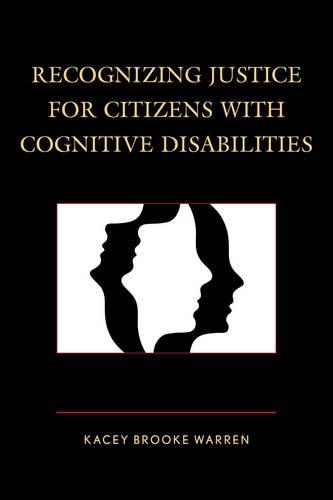
Recognizing Justice for Citizens with Cognitive Disabilities
(Paperback)
Available Formats
Publishing Details
Recognizing Justice for Citizens with Cognitive Disabilities
By (Author) Kacey Brooke Warren
Bloomsbury Publishing PLC
Lexington Books
29th August 2016
United States
Classifications
Tertiary Education
Non Fiction
Disability: social aspects
323.3
Physical Properties
Paperback
204
Width 152mm, Height 225mm, Spine 15mm
318g
Description
Although undeniably subject to the coercive political institutions of a liberal state, citizens with cognitive disabilities have frequently and without justification been denied political equality and political liberty. Rather than opposing this treatment, philosophers have tacitly condoned it, often by silence, and other times by explicitly neglecting the concerns for justice that these citizens have. In Recognizing Justice for Citizens with Cognitive Disabilities, Kacey Brooke Warren searches for a theory of justice that can adequately address these concerns. Students and scholars of philosophy, political theory, and disability studies will benefit from Warrens discussion of four of the most influential contemporary theories of justice and her analysis of which of the four is most promising for extending political equality and political liberty to citizens with cognitive disabilities.
Reviews
In this original and timely book, Kacey Brooke Warren focuses on the political epistemological question of how we can determine what justice requires for citizens with such cognitive disabilities as Down syndrome, autism, and Alzheimers disease. She assesses existing philosophical proposals by two standards: one is the Standard of Presumptive Political Equality; the other is the Liberal Standard of Justification, which requires any justice regime be acceptable to those who fall within its scope. Warren argues that the proposals offered by Rawls, Nussbaum, and Kittay fail these standards. However, she finds promise in Axel Honneths concept of differentiated recognition, and her conclusion builds on this concept to develop an innovative method of political justification based on trust and transparency. Recognizing Justice for Citizens with Cognitive Disabilities is an important contribution to a fast-growing philosophical literature on justice for people with cognitive disabilities.In particular, it offers a groundbreaking sustained examination of a crucial aspect of the issue that has not received the philosophical attention it deserves. -- Alison M. Jaggar, University of Colorado, Boulder
Author Bio
Kacey Warren is lecturer of philosophy at the University of Colorado, Boulder.
